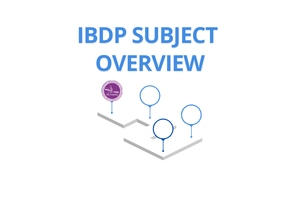Table of Contents
🧬 IBDP Biology (SL and HL) – Comprehensive Course Summary
📌 Subject Overview
IBDP Biology explores the fascinating structures, processes, and functions of living organisms. This comprehensive course covers key biological concepts, including cellular biology, genetics, evolution, and ecology, emphasizing practical experimentation and real-world application.
🌟 Key Features
🔬 Inquiry-Based Learning: Strong emphasis on experimentation, lab activities, and scientific inquiry.
⚖️ Ethical Considerations: Encourages thoughtful reflection on ethical implications in biology and biotechnology.
🌏 Diverse Topics: Ranges from molecular biology and biodiversity to human physiology.
🎯 Aims and Objectives
Fundamental Understanding: Master essential biological principles, processes, and structures.
Scientific Skills: Develop robust skills in scientific investigation, inquiry, and data interpretation.
Real-World Applications: Apply biological concepts to environmental challenges and human health.
Ethical Awareness: Evaluate the ethical dimensions of biological research and technological applications.
📖 Course Structure
Standard Level (SL)
Core areas include:
Cells
Genetics
Evolution
Human physiology
Biodiversity
Ecology
Higher Level (HL)
All SL topics plus advanced studies in:
Advanced genetics
Neurobiology
Photosynthesis
Ecosystems
Additional detailed analyses and subtopics
🔍 Key Topics Explored
🧬 Molecular Biology: DNA structure, replication mechanisms, and protein synthesis.
🧩 Genetics: Mendelian inheritance, genetic modification, and the study of genetic diseases.
🌳 Evolution and Biodiversity: Theories of natural selection, species diversification, and taxonomic classification.
📝 Assessment Structure
📌 Paper 1 (SL & HL: 20%): Multiple-choice questions assessing fundamental biological concepts.
📝 Paper 2 (SL: 40%, HL: 36%): Short-answer and extended-response questions covering core and advanced topics.
🧪 Paper 3 (SL: 20%, HL: 24%): Questions related to experimental skills and optional advanced topics.
🔍 Internal Assessment (IA, 20%): Independently designed scientific investigation.
🛠️ Key Skills Developed
⚗️ Experimental Design: Mastery in planning and conducting biological experiments.
📉 Data Analysis: Competence in analyzing scientific data and recognizing trends.
💡 Critical Thinking: Evaluating scientific claims, methodologies, and ethical issues.
🧪 Example Investigations
🌿 Photosynthesis Rate Analysis: Investigating how varying light intensities affect photosynthesis rates.
🐁 Genetic Trait Inheritance: Studying inheritance patterns of traits using model organisms.
🔄 SL vs HL Differences
📚 Content Depth: HL encompasses additional advanced topics and complex analyses.
📝 Paper 3 Complexity: HL requires deeper analytical thinking and detailed understanding of advanced topics.
🌍 Global Issues Explored
🧬 Genetic Engineering: Ethical discussions surrounding gene editing and biotechnology.
🌱 Climate Change: Understanding biodiversity loss and its impact on ecological balance and sustainability.
🎓 Career and Academic Relevance
Career Opportunities
Medicine
Biotechnology
Environmental Science
Scientific Research
Academic Pathways
Biology
Biochemistry
Genetics
Ecology
✅ Summary
IBDP Biology equips students with essential scientific knowledge, analytical proficiency, and practical skills, fostering a comprehensive understanding of the biological world and preparing students effectively for diverse careers and academic opportunities in healthcare, research, and environmental conservation.
For more information visit www.myibsource.com

